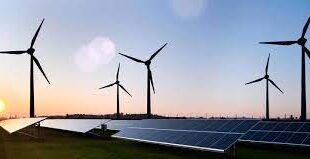The government is inviting views on energy efficiency requirements for external power supplies. such as mobile phones and speakers. that are in line with what was agreed by the UK at EU level earlier this year.
The EU’s ecodesign regulatory framework requires manufacturers of energy-related products to improve the performance of their products by meeting minimum energy efficiency requirements and various environmental criteria before they can place them on the European market. including the UK.
They include refrigerators. lighting. dishwashers. washing machines. motors. transformers and welding equipment.
BEIS says the ecodesign framework represents one of the most cost-effective ways to reduce energy bills and carbon emissions and help in the transition towards a low carbon economy.
Its estimates suggest the requirements. along with related energy labelling regulations. will save around £100 for the average dual fuel household on their energy bills and reduce eight million tonnes of carbon emissions in 2020.
Whilst most of the new regulations for various products will apply from 2021. the government is proposing to introduce the new ecodesign rules for external power supplies from April 2020.
External power supplies are globally traded devices used to power a large variety of household and office products.
They can either charge built-in batteries of electronic and electric devices such as mobile phones and tablets. or serve as the main continuous power source for devices such as stand-alone speakers or modems and routers.
More than 80 million external power supplies are sold in the UK every year.
The draft regulations set new minimum energy efficiency requirements. which are estimated to save around one million tonnes of carbon emissions equivalent between 2020 and 2029 and 5.000GWh of energy.
The BEIS document states: Our proposed approach would also mean aligning with the US Level VI Efficiency Standard which is the most ambitious standard to date. This would foster greater regulatory equivalence. promote the development of voluntary international standards. encourage innovation and have the additional benefit of not imposing additional regulatory compliance costs onto manufacturers.
Not legislating by contrast would mean UK manufacturers would be less incentivised to innovate and produce products that comply with the new EU requirements. This would result in missed opportunities in terms of carbon and energy bill savings.
Further. for non-UK manufacturers who fail to plan and adjust to the new EU regulation. there may be excess supply of products that do not comply with the new EU regulation. These products may temporarily reach the UK market. impacting carbon and energy bill savings negatively.
The consultation is open until 15th October 2019.
 Iran Energy News Oil, Gas, Petrochemical and Energy Field Specialized Channel
Iran Energy News Oil, Gas, Petrochemical and Energy Field Specialized Channel




